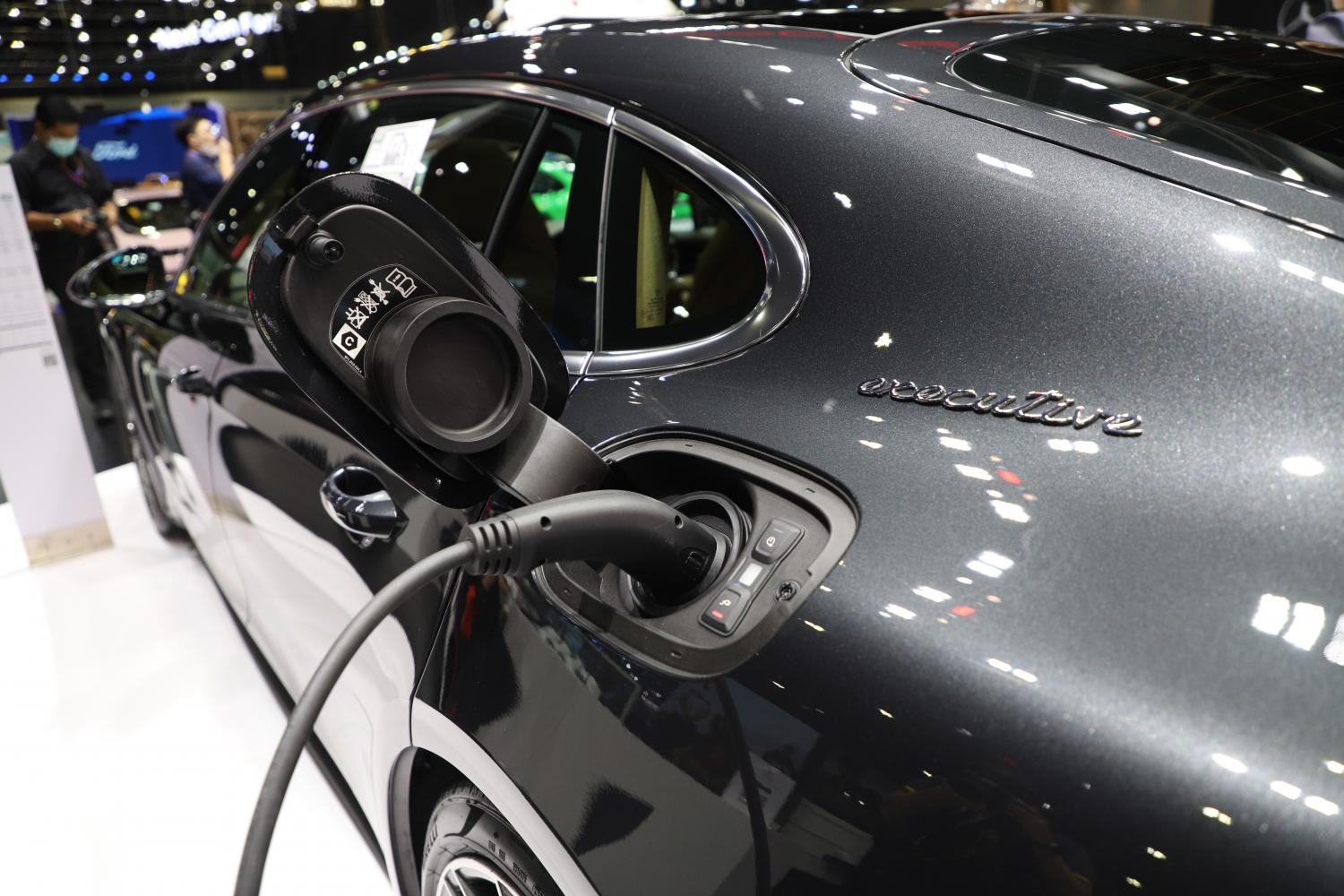
Japanese car company Isuzu, the leader in the Thai pickup market, is waiting for the right moment to launch electric pickups and trucks in the Thai market, which is currently more geared towards passenger electric vehicles (EVs).
The Yokohama-based automaker is developing electric pickups and plans to launch electric trucks in Japan next year.
During the initial phase of EV industry development in Thailand, battery-powered passenger cars, including saloons, are likely to become more popular than electric commercial cars, such as pickups and trucks, according to Tri Petch Isuzu Co, the local distributor of Isuzu cars.
Passenger EVs are suitable for driving in cities where charging outlets are easy to find. Drivers can charge their batteries at petrol stations, malls and even some condos.
"In Thailand, both the government and companies have developed EV charging facilities mostly to suit passenger cars, not commercial cars," said Takashi Hata, president of Tri Petch Isuzu.
"There are fewer charging stations for electric trucks and pickups."
Isuzu is among several global auto manufacturers operating in the country that are keen to market EVs, which the government is promoting with a good deal of enthusiasm.
In February, the cabinet approved a package of incentives including tax cuts and subsidies to stimulate EV consumption and production from 2022 to 2023.
"We are interested in the EV industry. Our parent firm in Japan has spent money on developing EV technology, in line with the global campaign for a net-zero target," said Mr Hata.
The net-zero campaign refers to efforts to strike a balance between greenhouse gas emissions and absorption.
In Thailand, Isuzu focuses on the sale of commercial cars, notably pickups and mid-sized to large trucks. Before the company plans to introduce electric versions of these vehicles here, it must be sure there are charging facilities widely available for these machines, he said.
From January to October this year, Isuzu's domestic car sales tallied 177,714 units.
"Our pickups commanded a 46% market share, the largest in the pickup segment," said Takashi Kasahara, vice-president of Tri Petch Isuzu.
Like other manufacturers, Isuzu has been affected by the global semiconductor shortage, which caused it to temporarily halt car exports to Asean, Australia, the Middle East and Europe.







